The Benefits of Mulching: Why Mulch is Essential for Your Vegetable Garden
Improving soilMulching offers many advantages beyond aesthetics to transform your vegetable garden. And adding mulch to your garden doesn’t have to mean hauling heavy bags from the store. There are natural things to use for free all around you.

Vegetable Garden Mulching
From preventing weeds and soil erosion, regulating moisture and soil temperature, and improving soil fertility, mulching is a game-changer for any gardener. In this article, we’ll explore the numerous benefits of mulching and how to use different types of mulch. Get ready to discover the secret to a thriving garden and say goodbye to endless weeding and struggling plants - mulching is about to become your new best friend.
Table of Contents
What Does Mulching Do?
Mulching is a gardening technique that involves covering the soil around your plants with a layer of organic or inorganic material. Mulching is important because it provides a range of benefits that promote healthy plant growth and minimize maintenance efforts. A layer of mulch acts as a protective barrier to control weeds, retain moisture, regulate soil temperature, improve soil fertility, and reduce the need for constant watering.
Inorganic mulches, such as gravel, rocks, and plastic, do not break down but control weeds and help warm the soil. Organic mulches are better in vegetable gardens where you want something that is easy to work with and improves your soil.
Weed Control with Mulching
Weed Control: Mulch acts as a barrier, preventing weed growth and reducing the need for manual weeding.
One of the key benefits of mulching is its ability to suppress weed growth in your garden. By creating a barrier between the soil and sunlight, mulch prevents weed seeds from germinating and growing. This means less time spent on manual weeding and more time enjoying your garden. Additionally, mulch helps to smother existing weeds, preventing them from spreading and taking over your garden beds. By reducing weed growth, mulch also helps improve your garden's overall appearance, giving it a neat and well-maintained look. So, if you're tired of battling weeds in your garden, mulching is a simple and effective solution.

Moisture Retention and Conservation with Mulching
Retain Moisture: Mulch helps to retain moisture in the soil, reducing the need for frequent watering.
A significant advantage of mulching is its role in moisture retention and conservation. Covering the soil with a layer of mulch creates a barrier that helps prevent evaporation and keeps the soil moist for extended periods of time. This is especially important when water can quickly evaporate from the soil during hot and dry weather conditions. By retaining moisture, mulch reduces the need for frequent watering, saving you time and conserving water. Additionally, consistent moisture levels in the soil promote healthy root growth and overall plant health.
Mulch also improves water infiltration and reduces runoff. When rain or irrigation water hits the mulch layer, it slows down and spreads out, allowing more time for the water to be absorbed into the soil. This helps prevent soil erosion and ensures that the water reaches the plant roots where it is needed the most.
Prevent Soil Erosion with Mulching
Soil Erosion Prevention: Mulch helps to prevent soil erosion by reducing the impact of heavy rain and wind.
Preventing soil erosion is another benefit of mulching your vegetable garden. Heavy rains and strong winds can easily wash away the top layer of soil, leaving your plants exposed and vulnerable. However, applying a layer of mulch to your garden beds can significantly reduce the impact of these weather conditions. Mulch acts as a protective barrier, absorbing the force of the raindrops and preventing them from directly hitting the soil. This helps slow the flow of water and allows it to be absorbed more effectively into the ground. Similarly, mulch helps to break the force of strong winds, preventing them from carrying away loose soil particles. By reducing soil erosion, mulch helps to maintain the integrity of your garden beds.
Temperature Regulation with Mulching
Temperature Regulation: Mulch helps to regulate soil temperature, keeping it cooler in the summer and warmer in the winter.
Mulching plays a crucial role in regulating soil temperature, providing a stable and favorable environment for plant growth. In hot climates, mulch acts as an insulating layer, shielding the soil from the scorching sun and reducing soil temperature fluctuations. This helps prevent heat stress in plants and promotes healthier root development.
During colder months, mulch acts as a protective blanket, insulating the soil and plants from freezing temperatures. This is especially important for perennial plants and young seedlings that may be susceptible to frost damage. By maintaining a more stable soil temperature, mulch extends the growing season and protects your plants from extreme weather conditions. Mulching in winter can be beneficial when the freeze/thaw cycle can heave plant roots.
Nutrient Enrichment and Soil Improvement with Mulching
Nutrient Enrichment: As mulch breaks down, it adds organic matter to the soil, enriching it with nutrients for healthier plant growth.
In addition to its protective qualities, mulch also provides a valuable source of nutrients for your plants. As the mulch breaks down over time, it adds organic matter to the soil, which is essential for healthy plant growth. This organic matter contains a variety of nutrients, such as nitrogen, phosphorus, and potassium, that are vital for plant development. By enriching the soil with these nutrients, mulch helps to create a fertile environment that promotes strong and vibrant plant growth. This is especially beneficial for gardens with nutrient-poor soil, as the mulch can help to replenish and improve the overall quality of the soil. Additionally, the mulch's organic matter helps improve soil structure, making it easier for plants to access water and nutrients. The nutrient enrichment that mulch provides is essential to maintaining a thriving and productive garden.

Best Types of Mulch for Vegetable Gardens
Now that you know the benefits of mulching your vegetable garden, what kind of mulch should you use? While landscape fabrics and plastics have their advantages, organic mulches contribute to long-term soil health. For healthy vegetable gardening, we prefer organic rather than inorganic materials for garden mulch.
Various mulch types are available, each with its own set of benefits. Understanding the benefits and characteristics of each mulch type allows you to choose the most suitable option for your garden.
We like to use what is readily available. And there are many materials nature provides for free. We’ll discuss our favorite organic materials to use in vegetable gardens.

Mulching with Wood Chips
Wood chips are the most common type of mulch used in the widest variety of gardens. When they are laid on top, wood chips don’t take nitrogen out of the soil. As they decompose over time, they improve the soil fertility and composition. The size and type of the wood chips will determine where to use them.
Wood chips are not recommended for places where you want to sow seeds. They are better in areas where the plants are already large. Wood chip mulch is excellent at keeping out weeds.
Wood chips can be added to lasagna and no-till gardens.

Mulching with Straw
Straw is lightweight and perfect for mulching around young seedlings. It is also excellent for lightly layering over seeds when sowing large areas. This is the method we use for sowing wildflower seeds in the fall.
When using straw for mulch, make sure you get straw that doesn’t contain weed seeds.
Mulching with straw can also provide insulation for plants during winter, protecting them from freezing temperatures.

Mulching with Grass Clippings
Using grass clippings as mulch is a great way to add nitrogen to the soil. If you keep pesticides off your lawn, you can easily add grass clippings to your vegetable garden.
When mulching with grass clippings, let the grass dry out and apply thin layers. You can read more about using grass clippings in our blog.

Mulching with Leaves
All those fall leaves can be used as mulch. The leaves will decompose and create supremely rich garden soil.
To add leaves as mulch, use a mulching mower to run them over.
Don’t use black walnut leaves. Also, don’t use leaves that are infected with any diseases.

Mulching with Pine Needles
Pine needles are lightweight and don’t get compacted while decomposing. Gardeners are often concerned about them being too acidic, but they will neutralize as they break down. They start out with a pH of around 3.5 when fresh off the tree.
Plants that like more acidic soil will thrive with a layer of pine needle mulch. Tomatoes, carrots, and celery are all vegetables that enjoy a layer of pine needles.
You will need a thicker layer to prevent weeds when using pine needle mulch.
Mulching Techniques and Best Practices for Vegetable Gardens
To maximize the benefits of mulching, it's important to follow proper techniques and best practices.
- Mulch should be applied in layers 2 to 4 inches thick.
- You want mulch to cover the soil enough to prevent weeds from sprouting but not so thick it doesn’t allow for any water penetration or is too tall for the plants.
- Layers that are too thick can also become compacted instead of breaking down.
- Make sure to leave a small gap around the base of each plant to prevent moisture accumulation and potential rot.
What NOT to use as mulch in a vegetable garden
There are so many useful and free options for vegetable garden mulch. However, some of these free materials need to be avoided. When using mulch in a vegetable garden, you need to remember that you will be eating what you grow. You will want to keep your vegetables free from toxins and chemicals that you don’t want in your body.
With that in mind, never use grass clippings that have been treated with herbicides or toxic chemicals. Also, skip the wood chips that have been dyed or treated. While these may look beautiful in other areas, your vegetables are not the place for them.
Mulching your vegetable garden is a simple task with many benefits. From conserving moisture to suppressing weeds, mulch can significantly improve the health and productivity of your plants.
By understanding the different types of mulch and their benefits and following proper mulching techniques, you can maximize the advantages and create an optimal growing environment for your plants. Now that you know what types of mulch to use mulching your vegetable garden will become an essential tool.
Embrace the power of mulching and watch your garden flourish like never before!





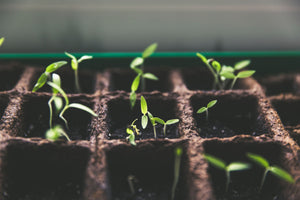
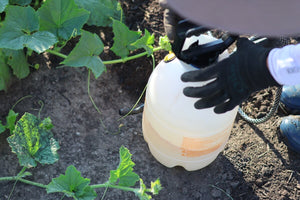
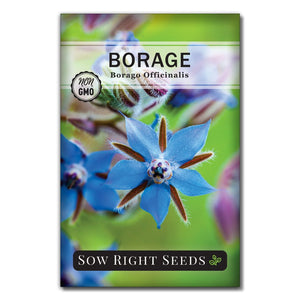
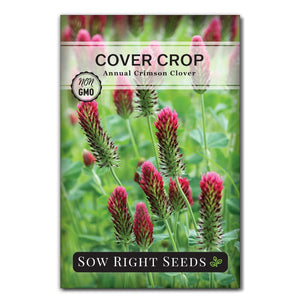
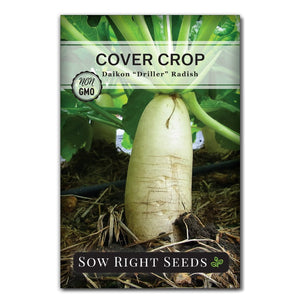
I’m delighted you brought up the significance of mulching, as it offers several advantages that encourage robust plant development while requiring less upkeep. I believe it would be a good idea to try this out, as my mother has been seeking for ways to take care of her garden. I’ll be sure to let her know about this and look into mulching services that would be of assistance to her.
https://www.kevinmccordearthmoving.com.au/mulching
Leave a comment